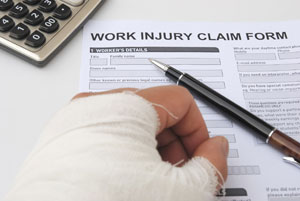The Four Levels of a Social Security Disability Appeal
If you suffer from an injury or illness that makes it impossible for you to work for at least 12 months, you can seek benefits through the federal Social Security Administration. Unfortunately, even if your claim seems clearly to fall within the guidelines established under the law, your application may be denied. If so, though, you still have options. Here are the four levels through which a Social Security disability claim appeal will travel.
Reconsideration
The first step you can take after the denial of an Social Security disability claim is to ask for a reconsideration. This is generally a matter of formality, as, in most states, you cannot move any further up the appeals process unless you have asked for a reconsideration. The reconsideration is conducted by a claims examiner at Disability Determination Services, and is more often than not denied.
A Social Security Disability Hearing
If, as most often happens, your request for reconsideration is denied, you can ask for a hearing before an administrative law judge. The judge will fully review your claim, as well as any new medical evidence you may have, and will render a decision based on all testimony and evidence presented. The judge may take testimony from a vocational expert regarding whether you have the capacity to work in a comparable job. Though the Social Security disability hearing offers the best chance of the reversal of a denial of benefits, it can take a long time to schedule a hearing.
The Disability Appeals Council
If your claim is rejected by the administrative law judge, you still have options. You can ask the Social Security Appeals Council, a group of more than 50 appellate judges, to review the findings of the administrative law judge to determine if any errors were made.
An Appeal in Federal District Court
The final avenue of appeal in a Social Security disability case is to the federal district court. You must file your appeal within 60 days of the decision by the Appeals Council. Technically, though you are appealing the decision of the administrative agency, your filing in federal court is in the form of an initial civil complaint. Federal law prohibits the filing of a lawsuit against the Social Security Administration, so you must name the Social Security commissioner as defendant. Once you have filed a complaint in federal district court, you have the right to appeal through the federal court system, to the U.S. Court of Appeals and ultimately to the U.S. Supreme Court.
Contact the Law Office of Taylor & Boguski
At Taylor & Boguski, we bring more than 70 years of combined legal experience to injured people throughout New Jersey. For a free initial consultation, contact us online or call us at 856-200-8989.


 The Illinois state legislature is hearing debate on a bill that would provide more protection to persons injured on the property of others. In Illinois, as in other states, a landowner generally has a duty to maintain residential or commercial premises so as to minimize the risk of injury to anyone legally on the property. The Illinois statute mandates “reasonable care” on the part of landowners, but a 2003 court case held that conditions that are “open and obvious” do not fall under this duty. The proposed law is an effort to change that.
The Illinois state legislature is hearing debate on a bill that would provide more protection to persons injured on the property of others. In Illinois, as in other states, a landowner generally has a duty to maintain residential or commercial premises so as to minimize the risk of injury to anyone legally on the property. The Illinois statute mandates “reasonable care” on the part of landowners, but a 2003 court case held that conditions that are “open and obvious” do not fall under this duty. The proposed law is an effort to change that. Most non-custodial parents want to provide for their children, and understand the importance of meeting their child support obligation. But what happens if you lose your job, or you are self-employed and can’t get a customer to pay you? What can you do to minimize the potential problems?
Most non-custodial parents want to provide for their children, and understand the importance of meeting their child support obligation. But what happens if you lose your job, or you are self-employed and can’t get a customer to pay you? What can you do to minimize the potential problems? The Connecticut legislature is entertaining two separate proposals to increase workers’ compensation benefits for people who experience psychological or emotional distress related to exposure to workplace violence. Efforts to amend the state’s workers’ compensation laws to address this concern have failed in each of the last two legislative sessions.
The Connecticut legislature is entertaining two separate proposals to increase workers’ compensation benefits for people who experience psychological or emotional distress related to exposure to workplace violence. Efforts to amend the state’s workers’ compensation laws to address this concern have failed in each of the last two legislative sessions. Pedestrian injuries and fatalities have been steadily on the rise since 2009, with an increase of nearly 650 pedestrian deaths nationwide in just three years. A study by the National Complete Streets Coalition found that nearly 50,000 pedestrians were killed in motor vehicle accidents between 2003 and 2012, and nearly 700,000 injured. One of the principal reasons, according to personal injury lawyers and accident reconstruction specialists—more American roadways and intersections are being designed to enhance motor vehicle traffic, at the expense of the lives of pedestrians.
Pedestrian injuries and fatalities have been steadily on the rise since 2009, with an increase of nearly 650 pedestrian deaths nationwide in just three years. A study by the National Complete Streets Coalition found that nearly 50,000 pedestrians were killed in motor vehicle accidents between 2003 and 2012, and nearly 700,000 injured. One of the principal reasons, according to personal injury lawyers and accident reconstruction specialists—more American roadways and intersections are being designed to enhance motor vehicle traffic, at the expense of the lives of pedestrians.  Divorce is always hard on children, even if family life was difficult before the breakup. As a parent, you don’t want to do things that will only add to your child’s sense of loss and grief. Here are important things to do and to remember to help your children cope with the changes the come with divorce.
Divorce is always hard on children, even if family life was difficult before the breakup. As a parent, you don’t want to do things that will only add to your child’s sense of loss and grief. Here are important things to do and to remember to help your children cope with the changes the come with divorce. Joining the trend set by Texas and Oklahoma, the state of Tennessee is looking at a statute that will create a “free market” alternative to the requirement that Tennessee employers carry a policy or workers’ compensation insurance. Sponsors say there is strong legislative support to amend the state’s workers’ compensation laws to reduce costs to employers while still protecting workers and their families.
Joining the trend set by Texas and Oklahoma, the state of Tennessee is looking at a statute that will create a “free market” alternative to the requirement that Tennessee employers carry a policy or workers’ compensation insurance. Sponsors say there is strong legislative support to amend the state’s workers’ compensation laws to reduce costs to employers while still protecting workers and their families. Workers’ compensation programs have been instituted in all fifty states, including New Jersey, to provide a streamlined process for injured workers to obtain benefits to cover lost wages and medical expenses. Unfortunately, a large percentage of claims, including many legitimate claims, are initially denied by workers’ compensation insurance companies. There are some valid reasons why a workers’ compensation claim will be denied:
Workers’ compensation programs have been instituted in all fifty states, including New Jersey, to provide a streamlined process for injured workers to obtain benefits to cover lost wages and medical expenses. Unfortunately, a large percentage of claims, including many legitimate claims, are initially denied by workers’ compensation insurance companies. There are some valid reasons why a workers’ compensation claim will be denied: